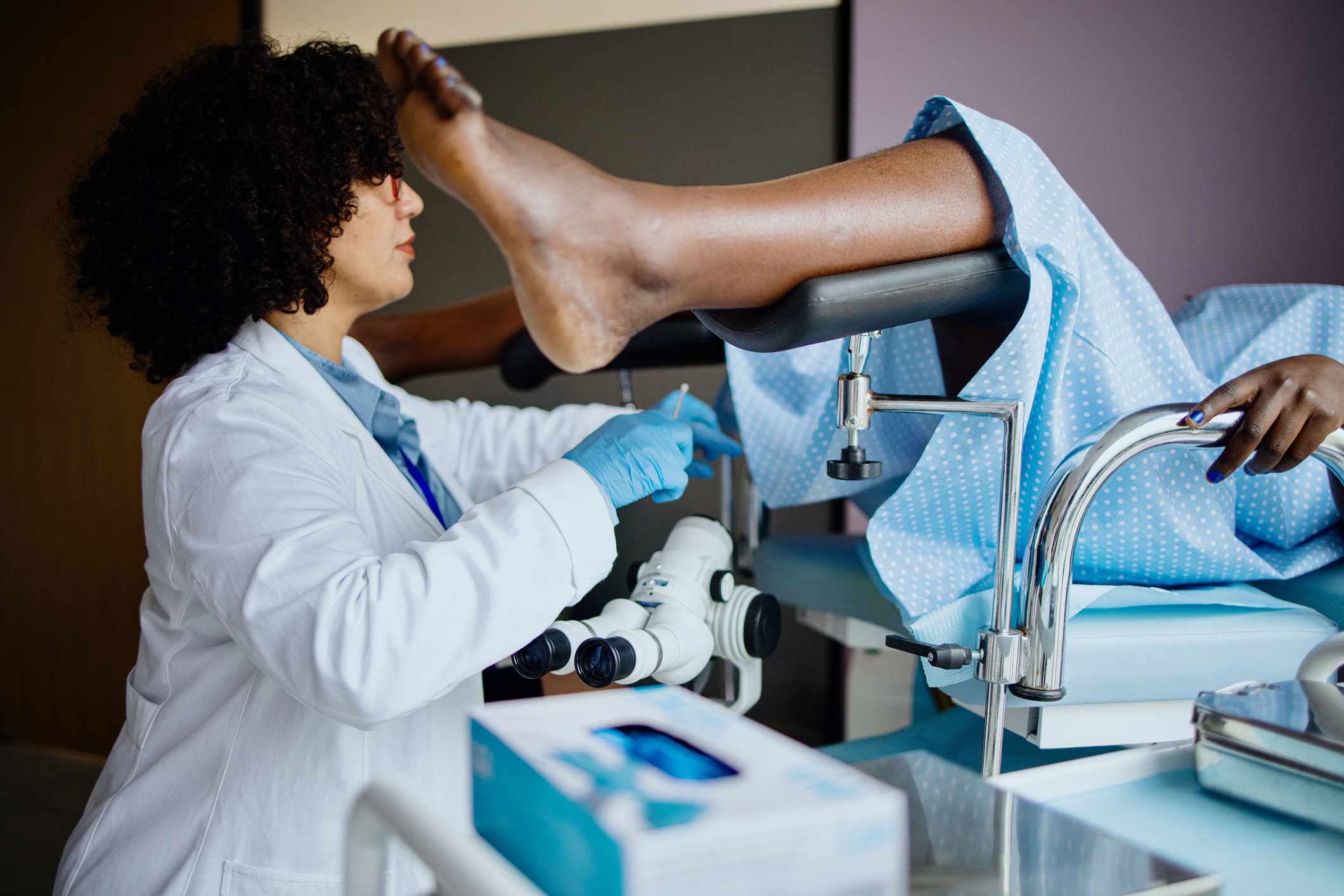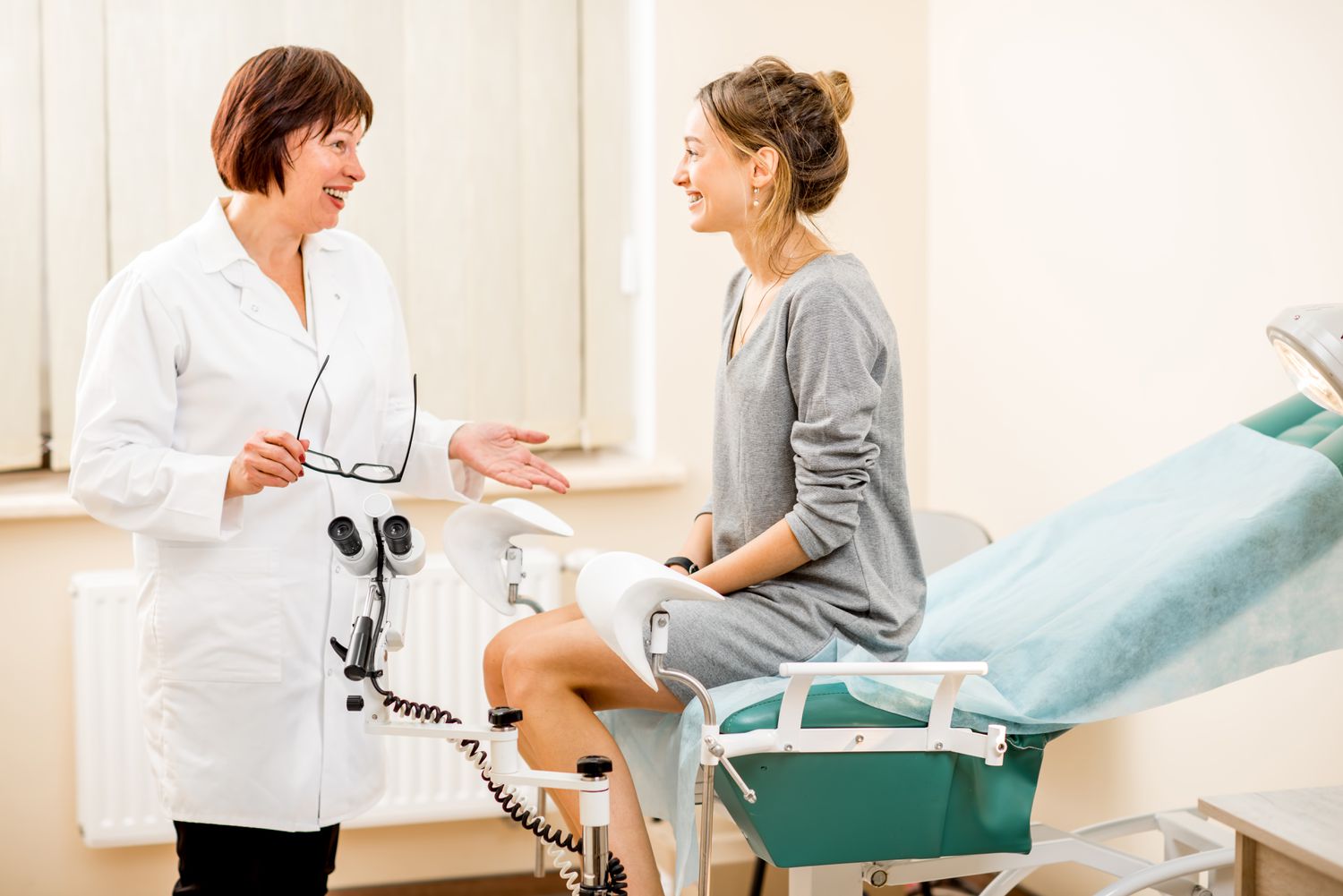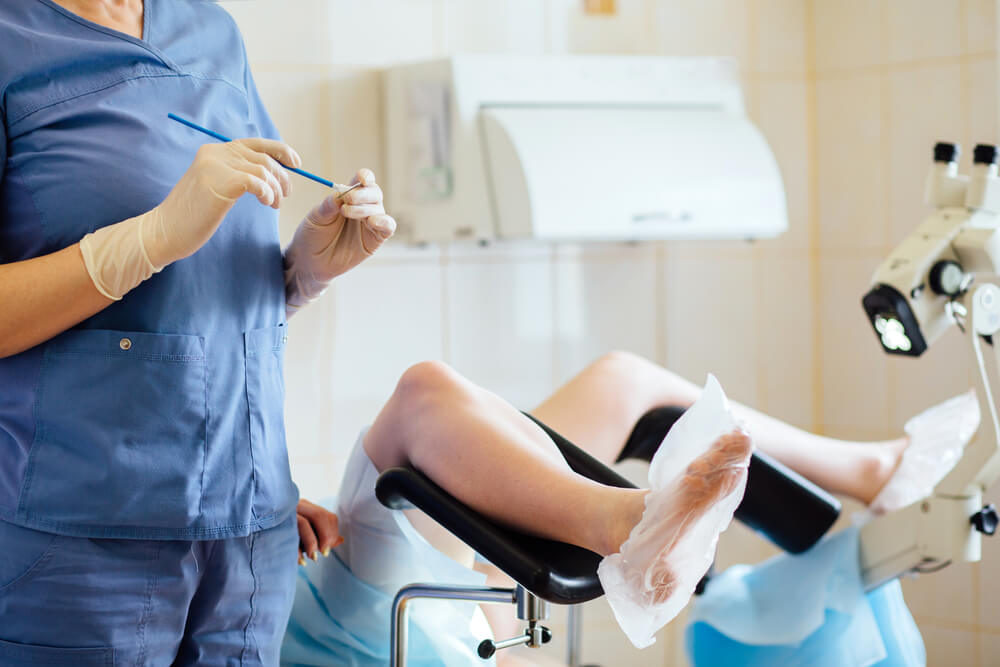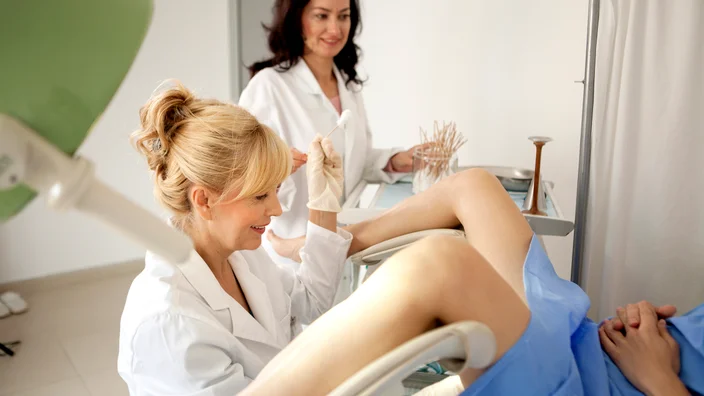Routine Pap smears are an important part of monitoring your gynecological health, but scheduling the test can be tricky when your period arrives. Many women wonder if it’s safe or advisable to go through with a Pap smear procedure during menstruation.

In this post, we tackle that question head-on by examining expert guidelines and medical advice around Pap testing and your monthly cycle. We’ll explore whether being on your period affects test accuracy, what to expect during a period Pap smear, and tips for optimal timing to ensure you get quality results.
Contents
Can You Get A Pap Smear On Your Period?
Yes, you technically can get a Pap smear while on your period. However, there are some factors to consider:
Accuracy:
During your period, there might be more blood present in the cervix, which can obscure the cells the Pap smear is trying to collect. This could lead to an inaccurate test result.
Comfort:
You might feel less comfortable having a Pap smear while menstruating.
Doctor’s Preference:
Some doctors may prefer to reschedule your Pap smear for a time when you’re not on your period to ensure optimal accuracy.
Here’s what you can do:
- Call your doctor’s office: Let them know you’re on your period and ask if they recommend rescheduling your Pap smear.
- Use tampons or a menstrual cup: If you’re comfortable and your doctor approves, using tampons or a menstrual cup can minimize blood flow during the Pap smear.
- Consider rescheduling: If you’d prefer to wait, or your doctor recommends it, rescheduling your Pap smear for a different point in your cycle is perfectly acceptable. Don’t skip the test altogether.
How Often Should You Get A Pap Smear?
The recommended frequency for Pap smears can vary depending on your age and certain risk factors. Here’s a general guideline:

Ages 21 to 29:
- For most women in this age group, Pap tests are not routinely recommended.
Ages 30 to 65:
- Every 3 years: This is the standard recommendation for women with a normal Pap test history and no significant risk factors.
- Every 5 years: If you choose to combine a Pap test with an HPV test (human papillomavirus test), which detects the virus that can cause cervical cancer, screening can be done every 5 years.
Age 65 and Older:
- Pap tests may not be necessary after age 65 if you’ve had several consecutive normal Pap tests in the decade before reaching 65, are not sexually active, and have no abnormal Pap tests in the past.
What Happens During a Pap Test?
A Pap smear is a crucial screening tool for detecting cervical abnormalities early on. When you get a Pap test, a small sample of cells is collected from your cervix. The procedure is relatively quick and simple.
Here’s what to expect during a Pap test:
- You’ll lie on an exam table with your feet placed in stirrups.
- A speculum is gently inserted into your vagina to provide access to the cervix.
- Your healthcare provider uses a special brush or spatula to collect cells from your cervix.
- The collected cells are then sent to a lab for analysis.
What Causes Bleeding After a Pap Smear?
Having a pap smear is a routine procedure for many women, but experiencing bleeding afterward can be concerning. Here are some common reasons why you might have bleeding after a pap smear:

- Cervical Sensitivity: Hormonal contraception like birth control pills can make your cervix more sensitive, increasing the likelihood of bleeding post-pap smear.
- Vaginal Infections: Infections such as STIs, STDs, or yeast infections can cause tenderness in the cervix, leading to bleeding after the test.
- Cervical Scraping: The act of scraping cells from the cervix during the pap smear itself can cause some minor bleeding.
If you notice bleeding after a pap smear, it’s essential to avoid tampons and vaginal penetration for a few days to allow the cervix to heal. Additionally, if you’re experiencing irregular bleeding or other concerning symptoms, it’s crucial to consult your healthcare provider for a proper evaluation and guidance.
Things to Look Out for After Pap Smear
After a Pap smear, there are a few things to look out for, but generally, it’s a very safe and well-tolerated procedure. Here’s a breakdown of what’s normal and what might warrant a call to your doctor:

Light Spotting: After a Pap smear, it’s normal to experience light spotting for a day or two. This can happen due to the gentle scraping of the cervix during the test.
Avoid Tampons and Sex: To prevent any irritation or infection, it’s best to avoid using tampons or engaging in sexual activity immediately after your Pap smear.
Contact Your Healthcare Provider: While light spotting is common, if you experience prolonged or heavy bleeding post-Pap smear, it’s crucial to contact your healthcare provider.
Unusual Symptoms: Be vigilant for any unusual symptoms after your Pap smear, such as severe cramping, fever, or a foul-smelling discharge. If you notice any of these, seek medical advice promptly.
Regular Follow-Ups: Regular Pap smear screenings are essential for your cervical health. Ensure you follow up as per your healthcare provider’s recommendations to monitor any changes or abnormalities.
| Data | Statistics |
|---|---|
| Abnormal Pap Smear Results | 3 out of 100 women may receive abnormal results |
| Cervical Cancer Detection Rate | Pap smears can detect up to 91% of cervical cancers |
| Recommended Screening Frequency | Regular screenings every 3-5 years are often recommended |
Ensure you prioritize your health and well-being by staying informed and seeking medical guidance whenever needed.
Frequently Asked Questions
How soon after a Pap smear may I experience light spotting?
Light spotting may occur within a few days after a Pap smear, which is normal. If the spotting persists or becomes heavier, it’s advisable to consult your healthcare provider.
Can I use tampons right after a Pap smear?
Avoid using tampons after a Pap smear to reduce the risk of infection. Opt for pads instead until your healthcare provider advises it’s safe to resume tampon use.
Is it safe to have sex immediately after a Pap test?
It is recommended to refrain from sexual activity, including using vaginal creams or medications, for at least 24 hours post-Pap smear to prevent irritation and infection.
I am a medical student with experience and interest in Women’s health and well-being.